PBT Compound – Bio-based-bottles 25-06-2022 - Arhive
PBT Compound – Bio-based-bottles
-A Revolutionary Solid-State Battery Is Nearly Here, Scientists Say
Faster-charging, safer, longer-lasting solid-state batteries are on their way. The only question now is: How soon until we can plug in?
QuantumScape’s San Jose campus in the heart of Silicon Valley is abuzz with confidence. The battery-technology company’s “QS Campus,” which includes QS-0, QuantumScape’s pre-pilot production line, and three adjacent buildings, is largely dedicated to manufacturing space. The scale of the campus itself and the company’s investment—each building is under a confirmed 10-year lease as of November 2021—signals QuantumScape’s assurance that it will be the first company to market with a solid-state battery for electric vehicles.
QuantumScape claims that you will be able to buy an Audi or Volkswagen with its batteries as soon as 2024, a vehicle that can go nearly 400 miles on a single charge, then recharge in 15 minutes. That capability would grant solid-state EVs a huge advantage over their competitors, which rely on the ubiquitous—but weaker—lithium-ion (Li-on) batteries. All-solid-state batteries (ASSBs) promise prolonged life, faster charge times, and safer chemistry compared to Li-on options, but producing them on the scale needed to power millions of vehicles won’t be easy, despite the billions of dollars already invested in the tech. Companies like QuantumScape are racing to reach the market ahead of other battery-focused outfits like Solid Power in Colorado and ProLogium Technology in Taiwan, as well as giant auto makers like Nissan. The competition begets, maybe even necessitates, bold claims, and QuantumScape isn’t short on those.
The all-solid-state battery at QuantumScape has reportedly weathered what chief marketing officer Asim Hussain calls, by the company’s own measure, “gold standard” testing. The ASSBs have fast-charged their cells (going from 10 to 80 percent in 15 minutes) 400 times consecutively, and some have gone through a total discharge and charge cycle almost 1,000 times.
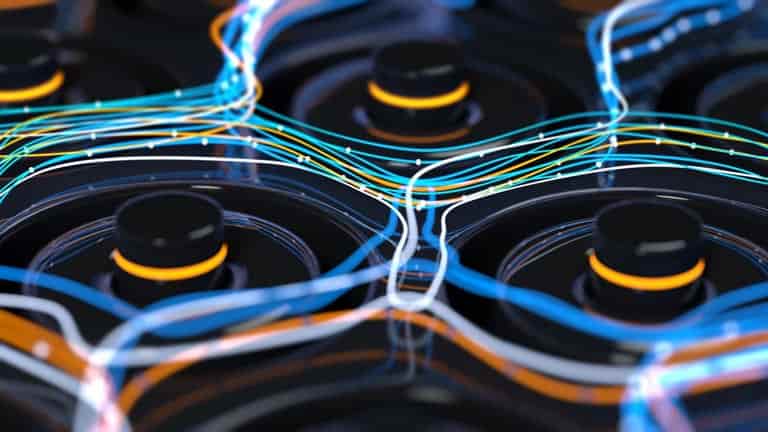
-LANXESS Introduces New Halogen-free, Flame-retardant PBT Compound for High-voltage Connectors
- Flame-retardant and hydrolysis stabilized;
- Electrical properties hardly dependent on temperature and moisture;
- High level of volume resistance, dielectric strength and tracking resistance;
- Enormous potential for use in electromobility.
Plastic connectors, for example, must remain electrically insulating under these conditions and must not allow tracking to occur. For these high-voltage connectors, LANXESS has tailored a new PBT (polybutylene terephthalate) compound that is halogen-free flame-retardant and hydrolysis-stabilized. PBT Compound – Bio-based-bottles
“One strength of the structural material is that its outstanding electrical properties are hardly dependent on temperature and moisture in the typical operating conditions of high-voltage connectors. It can be used at temperatures of up to 150 °C,” explains Dr. Bernhard Helbich, Technical Marketing Manager Key Accounts at LANXESS’ High Performance Materials business unit.
Highest insulation class CTI A 600
The compound is a first representative of the new Pocan BFN HR product range and is characterized by a high level of volume resistance and dielectric strength. For example, the latter is well over 30 kilovolts per millimeter at temperatures of up to 140 °C (IEC 62431-1). In the CTI test (Comparative Tracking Index, IEC 60112), the material achieves CTI A 600, the highest class possible according to the standard. This makes it highly tracking-resistant, which reduces the risk of short circuits and defects caused by creepage currents and caters to the growing need for miniaturized connectors. “But it can also be used at voltages higher than 600 V. The connector design for direct current systems can be optimized for up to 1,500 V in accordance with the design guidelines of the standard IEC 60664 / VDE 0110-1,” says Helbich. The tracking resistance of the compound also hardly diminishes after long-term thermal aging at 120 °C or after climate testing.
Hydrolysis-resistant and flame-retardant
The material, which is reinforced with 25 percent by weight of glass fibers, is very stable to hydrolysis. In specimen tests based on the stringent SAE/USCAR-2 Rev. 6 long-term hydrolysis tests of the US Society of Automotive Engineers (SAE), it achieved Class 3 a good rating. PBT Compound – Bio-based-bottles
Its good flame-retardant properties are demonstrated by the fact that it passed the UL 94 flammability test of the US testing institute Underwriters Laboratories Inc. with the excellent classification V-0 with a test specimen thickness of 0.75 millimeters. With its mechanical properties, the structural material meets the common requirements that are set for high-voltage connectors.
Bright colors and permanently color-stable
The compound can also be colored in bright colors, such as orange. This color is increasingly being used in electric vehicles to identify live, plastic-encased components. “Our material and the colorants used remain permanently color-stable in high operating temperatures so that the identification is not lost,” explains Helbich. LANXESS wants to have the thermoplastic listed under “All Colors” on the Yellow Card by UL. “In doing so, we will save the processor from the time-consuming UL certification process if they were to color the plastic themselves,” explains Helbich. “They can simply use the compound that we have colored and thus reduce costs,” he adds. PBT Compound – Bio-based-bottles
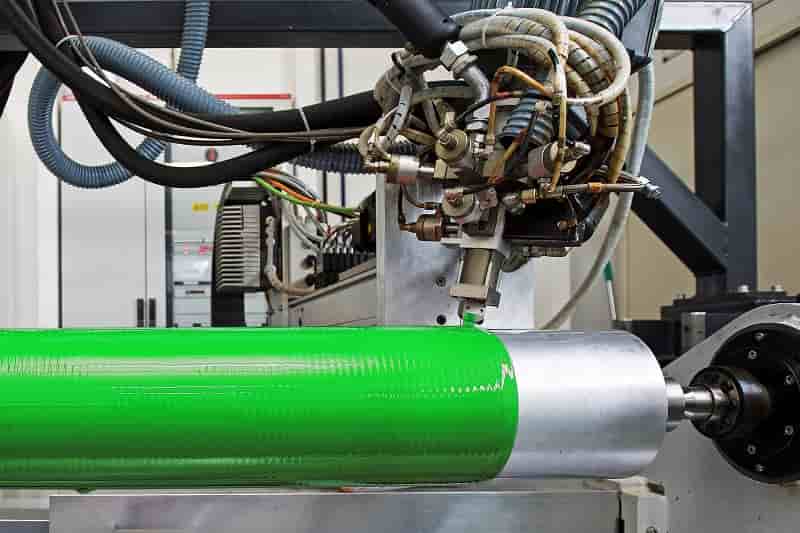
-Polyester market waiting for the dawn amid difficulties
Polyester market was in difficulty in May: macro market was volatile, demand remained meager and players held mildly recovering mindset, waiting for the dawn amid hardship.
In terms of macro, price of crude oil rose strongly again, supporting polyester industrial chain. On the other hand, the RMB exchange rate fluctuated greatly. Under such circumstance, players’ mindset was unsteady.
As for the market fundamentals, the spread of pandemic has been eased, while demand sustained mild. Downstream plants failed to follow the uptrend on feedstock market. Coupled with huge losses, the operating rate of downstream plants started falling from the second half of May. PBT Compound – Bio-based-bottles
Actually, polyester market witnessed improving performance compared with Apr. Polyester companies actively traced the uptrend on feedstock market after slashing production in Apr. Prices climbed up on the whole. Price of PSF dropped after supply recovered but overall trading price still moved up on the month.
However, the improvement was very limited. The polyester polymerization rate hit periodical low in mid-Apr at 78% while started ascending later but the increase was slow, which was above 83% in end-May.
The inventory of PFY was still as high as one month around and that of PSF was relatively low but may rise after supply recovered. In fact, downstream market of PFY and PSF was very weak now.
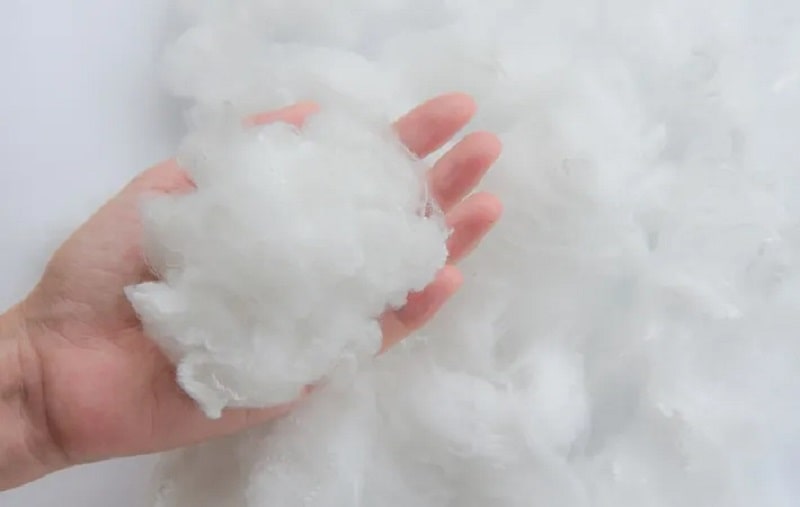
-Carlsberg pilots bio-based bottles in its largest ever trial
In its largest pilot to date, Carlsberg Group has revealed the trial of its new Fibre Bottle with a plant-based PEF (polyethylene furanoate) polymer lining.
The pilot, which Carlsberg says is “vital” to its ambition of making the beer bottle a commercial reality, will see 8,000 Fibre Bottles being sampled in eight Western European markets: Denmark, Sweden, Norway, Finland, United Kingdom, Poland, Germany and France. PBT Compound – Bio-based-bottles
The bottles will be trialled by local consumers, customers and other stakeholders through select festivals and flagship events, as well as targeted product samplings.
Testing at this scale will give Carlsberg the opportunity to gather feedback on people’s experiences of the product, which will inform the next generation of design, it says.
A significant milestone for the Fibre Bottle is its plant-based PEF polymer lining, which has been developed by Carlsberg’s partner Avantium, a leading expert in renewable chemistry. PEF is made entirely from natural raw materials, is compatible with plastic recycling systems, and can degrade into nature should it end up outside national recycling systems, Carlsberg says.
Beyond its sustainable packaging benefits, Carlsberg says PEF functions as a “highly effective barrier between the beer and the fibre outer shell, protecting the taste and fizziness of the beer better than conventional fossil-fuel-based PET plastic”.
“Identifying and producing PEF, as a competent functional barrier for beer, has been one of our greatest challenges – so getting good test results, collaborating with suppliers and seeing the bottles being filled on the line is a great achievement”
The outer shell of the bottle, produced by the packaging company Paboco, consists of sustainably-sourced wood fibre and is also bio-based. PBT Compound – Bio-based-bottles
“This shell has the added benefit of insulative properties which can help keep beer colder for longer, compared to cans or glass bottles,” it says.
The bottle is 100% bio-based apart from the cap, which is currently needed to ensure the quality of the product, Carlsberg says, and together the bottle and cap are fully recyclable. Going forward, Paboco, Carlsberg and partners in the wider Paper Bottle Community are exploring alternative fibre-based bottle caps, with a generic solution expected in 2023. Carlsberg will continue development, together with Avantium and Paboco, to arrive at a tailored 3.0 solution that is equally suitable for primary beer packaging, using this year’s consumer feedback and Paboco’s developments. PBT Compound – Bio-based-bottles
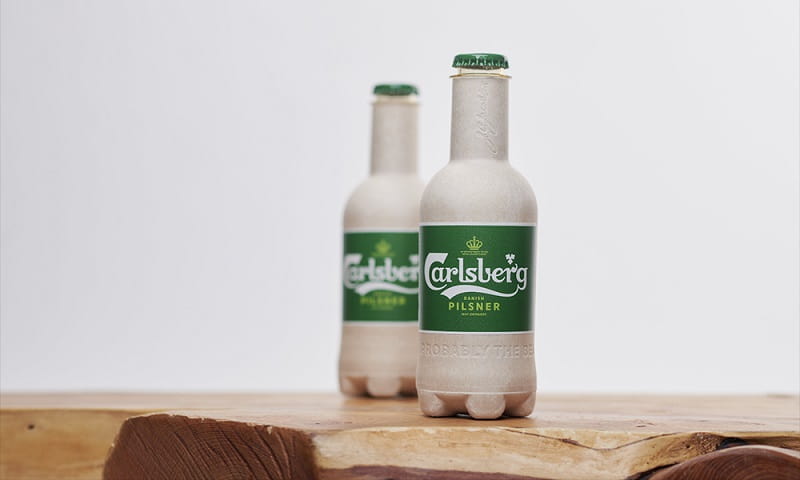
-Spray-on coating could replace plastic wrap
“We have come up with is a scalable technology, which enables us to turn biopolymers, which can be derived as part of a circular economy from food waste, into smart fibers that can wrap food directly,” says Philip Demokritou. “This is part of new generation, ‘smart’ and ‘green’ food packaging.” PBT Compound – Bio-based-bottles
A new biodegradable, plant-based, spray-on coating may offer an environmentally friendly alternative to plastic food wrap and containers, researchers say.
The coating can guard food against pathogenic and spoilage microorganisms and transportation damage.
The scalable process could potentially reduce the adverse environmental impact of plastic food packaging as well as protect human health.
“OVER THE PAST 50 TO 60 YEARS… WE’VE PLACED 6 BILLION METRIC TONS OF PLASTIC WASTE INTO OUR ENVIRONMENT.”
“We knew we needed to get rid of the petroleum-based food packaging that is out there and replace it with something more sustainable, biodegradable, and nontoxic,” says Philip Demokritou, chair in nanoscience and environmental bioengineering at the Rutgers University School of Public Health and Environmental and Occupational Health Sciences Institute, as well as director of the Nanoscience and Advanced Materials Research Center.
“And we asked ourselves at the same time, ‘Can we design food packaging with a functionality to extend shelf life and reduce food waste while enhancing food safety?’ And what we have come up with is a scalable technology, which enables us to turn biopolymers, which can be derived as part of a circular economy from food waste, into smart fibers that can wrap food directly. This is part of new generation, ‘smart’ and ‘green’ food packaging.”
The study in the journal Nature Food describes the new kind of packaging technology, which use the polysaccharide/biopolymer-based fibers.
Like the webs cast by the Marvel comic book character Spider-Man, the stringy material can be spun from a heating device that resembles a hair dryer and “shrink-wrapped” over foods of various shapes and sizes, such as an avocado or a sirloin steak.
The resulting material that encases food products is sturdy enough to protect bruising and contains antimicrobial agents to fight spoilage and pathogenic microorganisms such as E. coli and listeria. PBT Compound – Bio-based-bottles
The research paper includes a description of the technology called focused rotary jet spinning, a process by which the biopolymer is produced. Quantitative assessments show the coating extended the shelf life of avocados by 50%. The coating can be rinsed off with water and degrades in soil within three days, according to the study.
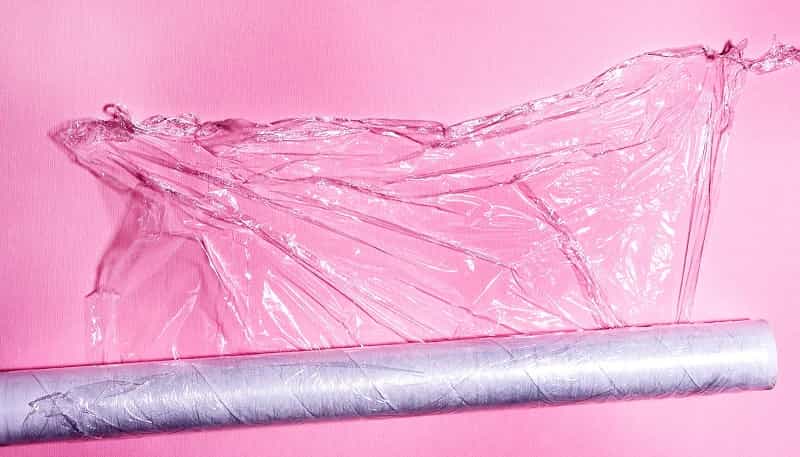
-Why sales of polyester filament yarn continue improving?
Sales of polyester filament yarn (PFY) continued improving since last Friday, with sales ratio at 370%, 130% and 160% on last Friday, this Monday and Tuesday by P.M.3:00 respectively. Why can sales of PFY keep rising amid sluggish downstream market?
Prices of PFY rapidly climbed up in May, with increment at above 1,000yuan/mt by end-May. However, price of grey fabric was hard to advance. PBT Compound – Bio-based-bottles
There was no orders after offers increased in some plants. In addition, sales were mainly under previous price when orders were placed. DTY market witnessed similar performance. Price of POY rose much more than that of DTY. Fabric mills and DTY producers saw apparently increasing losses in May. Under such circumstance, downstream buyers showed bigger resistance to rising raw material prices from the second half of May and presented stronger intention to cut production. The operating rate of downstream plants dropped again, with the run rate of fabric mills down by 12 percentage points from early-May to 52% last week and that of DTY plants falling by 15 percentage points to 63% compared with early-May. PBT Compound – Bio-based-bottles
With strong resentment and slipping operating rate, why can sales of PFY continue increasing? Downstream plants did not see obviously better orders and were under losses based spot raw material price, while sales of PFY were good, really hitting expectation. The root may be changing attitude toward feedstock price trend. Some downstream companies gradually accepted high-priced PFY.
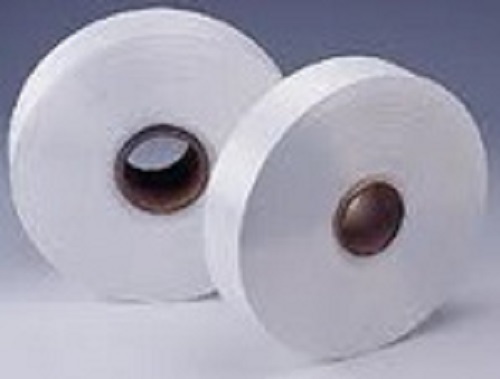
-LyondellBasell licenses Lupotech T technology to Levima Green Advanced Materials Co., Ltd.
LyondellBasell (NYSE: LYB) announced today that Levima Green (Shandong) Advanced Materials Co., Ltd. will use LyondellBasell’s Lupotech T high-pressure polyethylene technology at a new site. PBT Compound – Bio-based-bottles
The Lupotech T process technology will be used for a 200 kiloton per year (KTA) vinyl acetate copolymer (EVA) line. The new line will be located in the Zaozhuang City, Shandong Province, P.R. of China.
“Being able to offer advanced process technology, combined with decades of resin experience, are key enablers which allow LyondellBasell to serve a rapidly growing market fueled by the green energy transition,” said Neil Nadalin, Director Global Licensing and Services at LyondellBasell. Nadalin added, “For significant scale production of both EVA and LDPE resins the Lupotech T process remains the benchmark for a cost effective investment for our customers around the world.”
Mr. Lao Daodan, Vice General Manager of Levima Green (Shandong) Advanced Materials Co., Ltd. stated, “Producing superior grades by using referenced, safe and reliable Lupotech T high pressure process technology is a tremendous benefit when competing in a rapid growing market. Despite global challenges, the teams concluded an accelerated technology implementation schedule designed for achieving the best possible time to market for such a complex project implementation.”
Decades of experience in high-pressure application design makes the Lupotech T process the preferred technology for LDPE/EVA plant operators. High conversion rates, demonstrated high plant availability and effective process heat integration are key attributes of the Lupotech T process, designed to ensure this technology’s energy efficiency. PBT Compound – Bio-based-bottles
More than 14 million KTA of the Lupotech T process for LDPE/EVA production capacity has been licensed by LyondellBasell in over 70 lines around the world.

-Sinopec raised MEG prices in China
Chinese petrochemical company Sinopec raised prices of monoethylene glycol (MEG) in eastern China in June by CNY75 per tonne to CNY5,115 per tonne, a company source told ICIS.
MEG prices rose and then fell in line with crude oil prices. Weak demand also weakened the sentiment of market participants. PBT Compound – Bio-based-bottles
Spot meg prices in East China on June 23 were at CNY4,540-4,610 per tonne, ex-tank compared to CNY4,900-4,955 per tonne, ex-tank on June 1.
The total capacity of the four Sinopec plants is 2.64 million tons of MEG per year.
According to MRC ScanPlast, in Russia, the estimated consumption of PET in January 2022 increased by 4% compared to the same indicator a year earlier. In total, according to the results of the first month of the year, 59.66 thousand tons of PET granulate were processed in the country (these data do not take into account the shipment of Russian material to the countries of the Customs Union).
Sinopec Corp. is one of the world’s largest integrated energy and chemical companies. The business of Sinopec Corp. includes oil and gas exploration, production and transportation of oil and gas, oil refining, petrochemical production, production of mineral fertilizers and other chemical products.
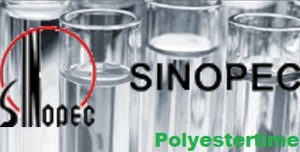
PBT Compound – Bio-based-bottles
